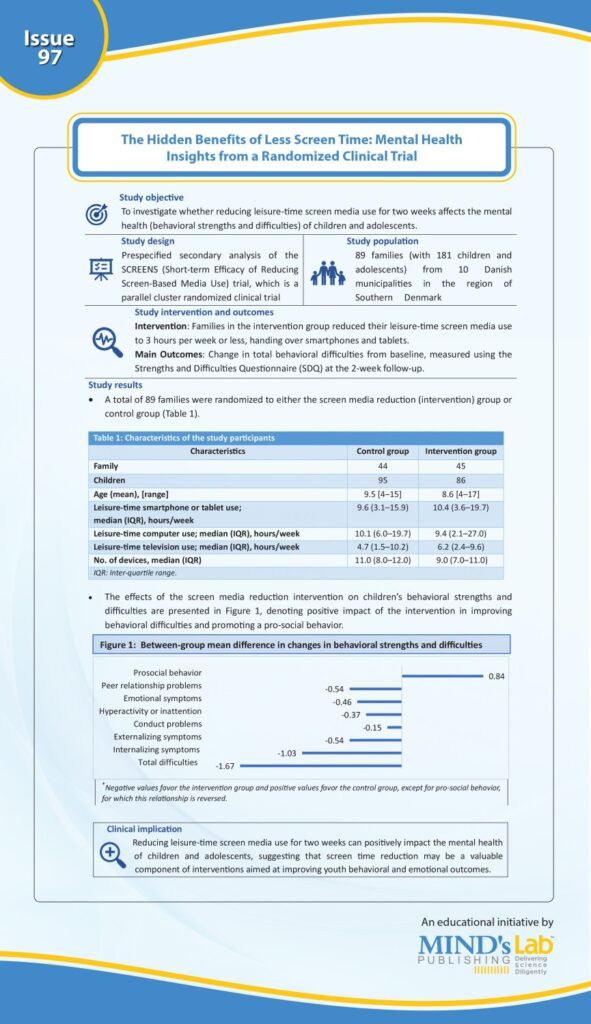
The proportion of children and adolescents with poor mental health (e.g., nervousness, irritability, difficulty in falling asleep) has increased in the recent past, in many countries, with 29% of the adolescents in the US and 25% of youth in Europe reported to have mental health issues!
The rise in the use of digital technology has made screen media use a central part of the lives of young people, offering various forms of entertainment and social interaction. Despite its benefits, there are growing concerns about the negative impact of excessive screen time on mental health. While some studies suggest moderate associations between high screen use and mental health issues, findings remain inconclusive.
Secondary analysis of the SCREENS (Short-term Efficacy of Reducing Screen-Based Media Use), a randomized controlled trial, recently published in JAMA Open Network, by Schmidt et al., investigated the short-term effects of a two-week reduction in leisure-time screen media use on the mental health of children and adolescents. There was a notable improvement in behavioral issues and in pro-social interactions. This provides valuable insights for potential interventions and public health strategies.

(Source: Schmidt-Persson J, Rasmussen MGB, Sørensen SO, Mortensen SR, Olesen LG, Brage S, Kristensen PL, Bilenberg N, Grøntved A. Screen media use and mental health of children and adolescents: a secondary analysis of a randomized clinical trial. JAMA Netw Open. 2024;7(7):e2419881. Doi:10.1001/jamanetworkopen.2024.19881)
